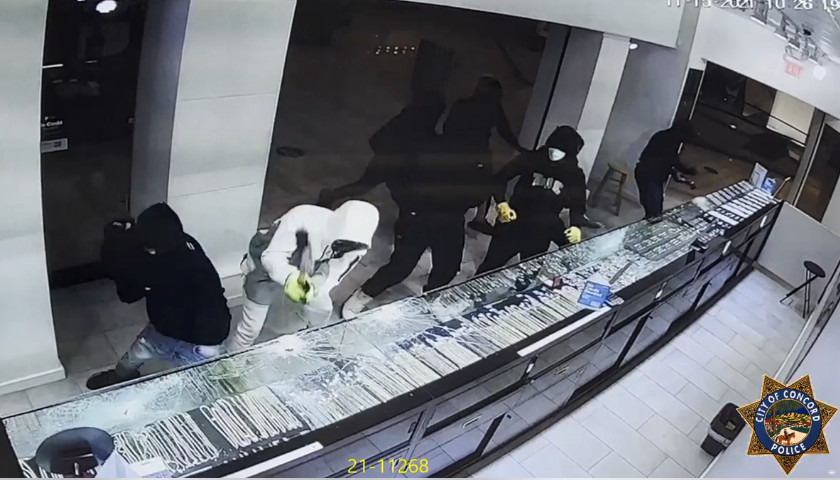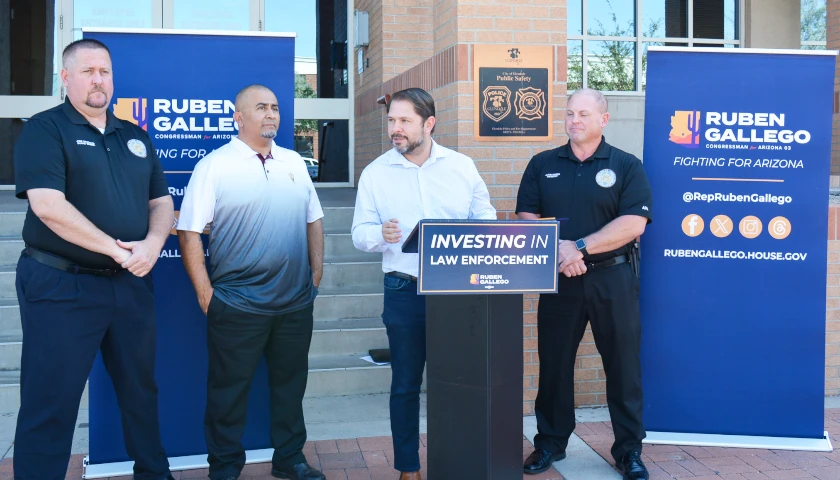Losses from retail theft have soared over the past several years, a problem exacerbated by soft-on-crime prosecutors and judges. Wisconsin has a Supreme Court justice candidate who, has suggested that shoplifters who steal from “big box” retailers shouldn’t be aggressively prosecuted.
State Sen. Andre Jacque (R-De Pere) says his bill lowering Wisconsin’s threshold for felony theft is in response to the increasing brazenness of criminals and the kid glove treatment they’ve gotten from some prosecutors and judges like Dane County’s Everett Mitchell.
Jacque and co-author State Rep. Amy Binsfeld (R-Sheboygan) sent out a co-sponsorship memo on Tuesday, noting that Wisconsin is one of two states to have the highest threshold for property theft to be considered a felony. The bill would reduce the state threshold for a Class I felony charge from $2,500 in stolen property to $1,000. Minnesota, Michigan and Iowa have felony theft thresholds of $1,000, while Indiana is $750 and Illinois is $500.
A Class I felony, Wisconsin’s lowest-level felony, comes with a maximum 3 1/2-year prison sentence and a maximum $10,000 fine, or both.
Under current law, theft of up to $2,500 in property is a Class A misdemeanor, punishable by up to nine months in jail, up to a $10,000 fine, or both.
“We’re seeing thieves becoming more and more brazen, feeling like they are able to steal very valuable merchandise and not face consequences,” Jacque said. “And, frankly, there are some folks at the local level that seem to dismiss the seriousness of these gangs of thieves.”
Pilferers, even habitual ones, routinely escape prison time, thanks to prosecutors who push plea bargain deals — often under their ideas of social justice or equity.
Mitchell, a Dane County Circuit Court judge and one of four candidates running for Wisconsin Supreme Court, in 2015 told a “Best Policing Practices” panel at the University of Wisconsin-Madison that he wanted to see “reforms to our criminal justice system that address disparities in policing for people of color.” Mitchell was a former assistant district attorney for Dane County who, at the time, was serving as director of community relations for UW-Madison.
“I just don’t think that they should be prosecuting cases …for people who steal from Walmart,” he said, adding that he didn’t think Target and other big box stores with insurance should be using “the fact that people steal from there as justification to start engaging in aggressive police practices, right?”
Jacque said those kinds of legal philosophies send a clear message to criminals.
“When we have officials charged with enforcing the law that say that following the law is no big deal, criminals are going to take notice and act accordingly,” the senator said. “It puts a big target on the backs of Main Street.”
Several U.S. cities have been swept up in a movement of liberal activist prosecutors, many of them generously backed by George Soros.
“They insist that not prosecuting entire categories of crime; not asking for bail; refusing to add sentencing enhancements; releasing hardened, convicted felons from prison; and declining to prosecute violent juvenile offenders in adult court; as well as ignoring shoplifting, drug possession, and prostitution (among other crimes) are sound policies that do not contribute to spikes in crime. They’re lying,” wrote the Heritage Foundation’s Zach Smith and Charles “Cully” Stimson in a column last August taking on Soros’ claims that “reform-minded prosecutors” have an agenda that promotes safety and justice and are “popular and effective.”
Parts of San Francisco, Los Angeles, Chicago, New York and other major cities have been under siege by shoplifter rings and so-called “smash-and-grab” crimes in recent years, forcing some stores to close.
But smaller communities are dealing with a rash of retail thefts, too.
“People are literally walking out with cartloads of power tools, cartloads of air conditioners. They’re just walking right out,” Grafton Police Chief Jeff Caponera, told the Milwaukee Journal Sentinel in November 2021.
Two-thirds of all the crimes reported to Grafton police in 2020 were retail thefts, according to the police department’s annual report to the community.
The most recent National Retail Federation survey found retail “shrink” — which includes problems like theft, gift card fraud and inventory mismanagement — accounted for nearly $95 billion worth of losses nationally in 2021.That’s about $5 billion more than 2020.
Those costs are passed down to a consumer already reeling from soaring inflation rates.
Undeterred property crime can lead to bigger issues, Jacque and Binsfeld noted in their sponsorship memo. City Journal Magazine reported, “nearly two-thirds of the retailers surveyed by the National Retail Federation said that violence associated with store thefts has risen, led by organized gangs that resell the goods they steal.”
Jacque introduced a similar bill lowering the threshold for felony theft crimes late last session, but he said there wasn’t enough time to move it through. He said it’s time to put Wisconsin more in line with other states and send a message to thieves that they will face serious consequences for their crimes.
“I think it’s important to make charges available to prosecutors that address the seriousness of these crimes,” the senator said. “There’s a real cost to consumers, not just the markup when items are stolen but the additional cost to business owners who have to take additional measures to prevent the mass thefts that are going on.”
“It’s really become an epidemic.”
– – –
M.D. Kittle is a senior reporter at Wisconsin Spotlight.
Image “Smash and Grab Robbery” by Concord Police Department.





